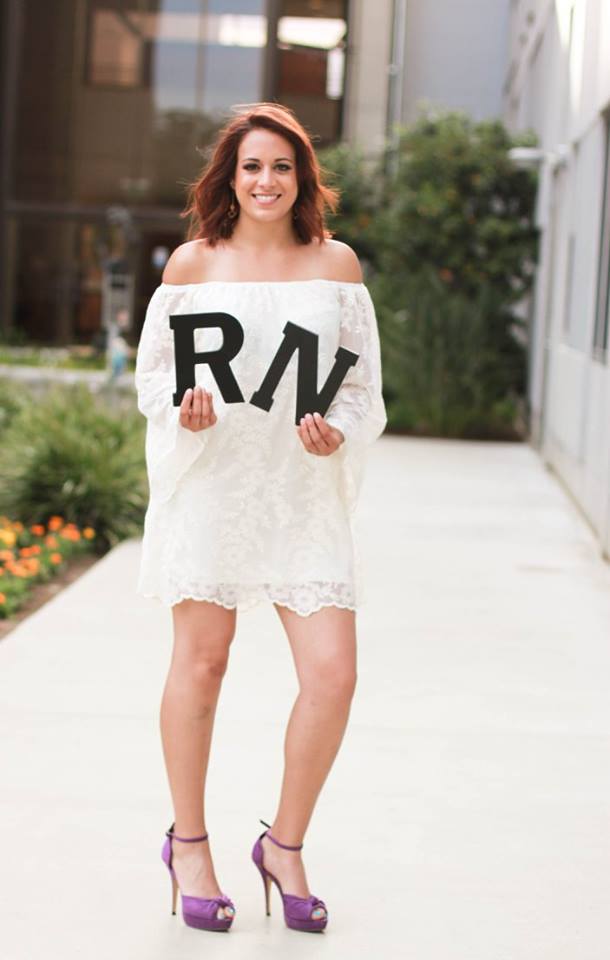Hey There!
I'm Reina
I am a full-time traveling registered nurse, fitness enthusiast, and nutrition expert. Every morning I wake up intending to bring awareness of the importance of health and spiritual wellness, especially to the traveling community. At Messy Bun Traveler, we promote travel that allows the traveler to either kick-start, maintain, or enhance a healthy lifestyle. So whether you're someone who travels for business, travels for pleasure, or new to travel and looking for health advice while on the road, this blog is for you!
inspiration
Categories:
health
destinations
fitness
resources
wellness
Privacy & Disclosure
The Messy Bun Traveler is designed to bring you fun stories, destination guides, and healthy travel advice. To help cover the cost of running this site, all posts are sprinkled with hand-selected affiliate links. When you click on one of these links and make a purchase, I will earn a small commission at no additional cost to you. I only accept affiliate links and paid advertisements from brands I believe in, trust and use personally. Thank you for your continued support!
10 Common Questions About Travel Nursing, Answered by a Travel Nurse
October 13, 2019
This October marks one year I’ve been working as a travel nurse, and to be frank; I have no idea where the time has gone!
In one year, I’ve worked a total of three travel contracts, lived in three different cities throughout California, traveled to six countries, and met so many other incredible travel nurses along the way.
This profession, while sometimes stressful and overwhelming, is also both rewarding and exhilarating. Throughout this year alone, I’ve received so many questions from colleagues, family members, and followers on social media about travel nursing and the requirements it entails.
Because of your curiosity, I have decided to write this post to share ten common travel nursing questions and how I can make this process easier for those considering making the transition into this role.
1. What is a travel nurse?
A travel nurse is a licensed registered nurse (RN) who is hired to work on a contract-to-contract basis. A typical contract is anywhere from 8-16 weeks long at any given facility.
A travel nurse is mainly used to fill gaps in staffing needs for hospitals due to medical leaves, short staffing, high-census seasonal fluctuations, or lack of experienced nurses on the floor.
Hospitals like to utilize travel nurses because these nurses can quickly fill their staffing needs, have years of experience under their belt, and the hospitals don’t need to pay for training, health insurance, or paid time off.
2. How does travel nursing work?
A hospital will work with travel nurse staffing agencies to fill the vacancies in their staffing.
If you’re looking to land a travel nurse contract, you’ll need to go through a staffing agency. There are hundreds of agencies to choose from, so it’s best to shop around for the one that is best for you.
My advice: build up your profile in at least three different staffing agencies. That way, when you’re looking to land a contract, you have more options to pick from.
When you sign on with a staffing agency, you will work with a recruiter. Your recruiter is the one that will send you travel nurse job opportunities based on your specific preferences.
For example, let’s say you want to work a 13-week contract in Hawaii with a start date in January. With this search criteria, your recruiter will send you those job opportunities from hospitals in Hawaii within that specific time frame.
You will then select which jobs you want, and then your recruiter will send your portfolio to that hospital’s hiring manager.
If the hiring manager likes your portfolio, they will give you a call for a short phone interview. If all goes well, you’ll have a contract landing in your inbox by the end of the day!
Once that contract is signed, it becomes a legal document, and ending your contract early is rarely allowed.

3. Who can be a travel nurse?
You must first be a registered nurse to become a travel nurse, and generally, you need at least two years of experience in your specialty before signing onto your first travel nurse contract.
There is no additional training, certification, or education required to become a travel nurse—the years of expertise you have in your given field is what will make you hirable.
With that, get ready to hit the floor running. Like I had mentioned earlier, hospitals like travel nurses because it cuts the cost of having to train new nurses.
Travel nurses get a short and concise orientation period—typically 2 to 3 shifts before they’re expected to operate on their own. This is just enough time to get oriented to the floor, acquainted with the online charting system, and get a general understanding of the workflow on the unit.
So, to answer your question, any REGISTERED NURSE with at least two years of experience and THE CONFIDENCE of their skills in their specialty (whether that is labor and delivery, operating room, intensive care, etc.) can become a traveling nurse.
4. How much do travel nurses make a year?
This question is difficult to answer because many factors play into how much money a travel nurse makes. There is a lot of grey area, but a typical travel nurse pay package is composed of various components, including hourly pay, non-taxed housing allowance, non-taxed per-diems, travel reimbursements, and more.
To answer simply, on the high end, many travel nurses can earn up to $3,000 per week and easily gross over six figures per year.
Other factors to consider are location as cost of living and nursing salaries comes into play. Also, the travel nurse’s specialty impacts pay rates. Non-specialty nurses such as medical/surgical and psychiatry are paid lower rates than specialized nurses such as intensive care and labor and delivery.

5. How do you become a travel nurse?
To become a travel nurse, you will have to go through the following steps:
- Complete an accredited nursing program. At minimum, you will need to complete an LPN or ADN education program, but these days many hospitals are requiring at least a bachelor’s degree in nursing.
- Pass the NCLEX exam. The NCLEX is the nursing licensure exam you’ll take once you complete nursing school.
- Gain at least 1-2 years (most travel nurse staffing agencies require two years) of permanent nursing experience in any given specialty you wish to work.
- Once you gain expertise, start researching agencies that can land you jobs based on your location and length of time in which you want to work.
- Gather all your necessary paperwork, including licenses, certifications, clinical records, resumes, etc. Your staffing agency will send you a detailed list of everything they require to start submitting you for job opportunities.
- Once your recruiter starts sending you job openings, pick the ones you’d like to apply!
- Go through the interview process. Most hiring managers will go through a brief phone interview with you. My specialty is labor and delivery, so common questions on phone interviews I get are:
- Tell me about your home hospital. What are the births per month (bpm)?
- Do you feel comfortable taking care of extremely sick moms or high-risk pregnancies?
- Are you capable of circulating a cesarean section on your own?
- How many travel assignments have you completed thus far?
So on and so forth.
6. Is it true that travel nurses get paid for housing?
Yes, this is true. Travel nurses will get a weekly housing, food, and travel allowance.
You’ll typically have two housing options during an assignment: agency-placed housing or a housing stipend. Agency-placed housing is when your staffing agency will arrange and pay for housing while on assignment. They are typically one-bedroom apartments within close proximity to the hospital.
A housing stipend is a non-taxable monthly payment based on the average cost of living in that area. Majority of travel nurses will choose this option because if the cost of housing is less than the stipend, the nurse can pocket the extra money.

7. What types of nurses travel?
Hospitals are looking to fill voids in all specialties and units. The ones that are always in high demand are:
- Emergency Room (ER)
- Labor & Delivery (L&D)
- Intensive Care Unit (ICU)
- Operating Room (OR)
- Neonatal Intensive Care (NICU)
To name a few.
8. Where do travel nurses travel?
Travel nurse needs can be found all over the United States. There are contracts located from large hospitals to smaller community hospitals and rural towns to big metropolitan cities.
Travel nursing gives you the flexibility to try them all!
9. Does travel nursing have job security?
According to the U.S. Bureau of Labor Statistics, there will be a shortage of approximately 1.1 million nurses by the year 2020. With that, there has been an exponential growth demand for travel nurses throughout the United States, and that need is only growing higher.

10. What was the hardest thing about transitioning from a staff to a travel nurse?
My first year of being a travel nurse was exciting, but also very overwhelming. Between moving to new cities and learning different hospitals with new policies and procedures, there were many days I’d head into work feeling extreme anxiety, self-doubt, and even panic.
After some time to adjust, the transition became a lot easier. Other factors that helped the adjustment process was traveling with my boyfriend, who was a great supporter and even shoulder to cry on when things became overwhelming.
See also:
Also, I kept my travels within the same state so I could easily travel back home when I had feelings of homesickness.
Another hard transition was constantly being the new nurse on the floor. It is not uncommon for travel nurses to be assigned tasks or patients that the permanent staff don’t want. It’s common for the staff nurses to put travel nurses on a “probation period” to prove they have the necessary skills.
In conclusion, one year ago I never thought I’d be packing up my car, throwing my furniture in storage, and driving across the state to work in this profession. Becoming a travel nurse helped push me out of my comfort zone and has forced me to grow not only in my career but in my personal life as well.
If you’re on the fence about becoming a travel nurse, I challenge you to stop talking yourself out of it and give it a try! After all, you only have to sign one contract to see if it’s right for you! And if not, you can just finish up your assignment and then head off to Aruba for a month!
Join my newsletter
* We will never share your details with any third party